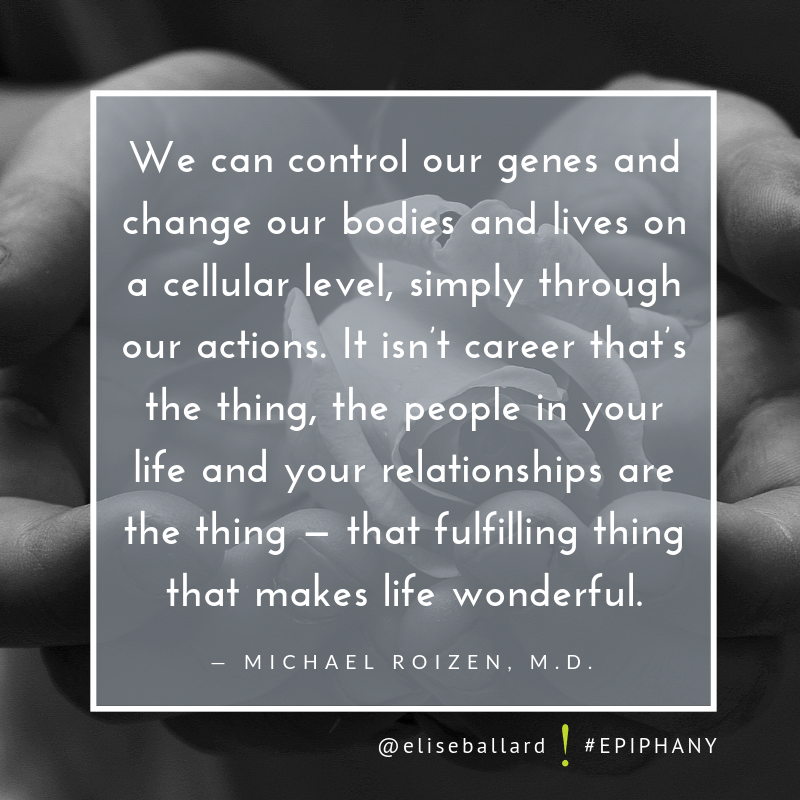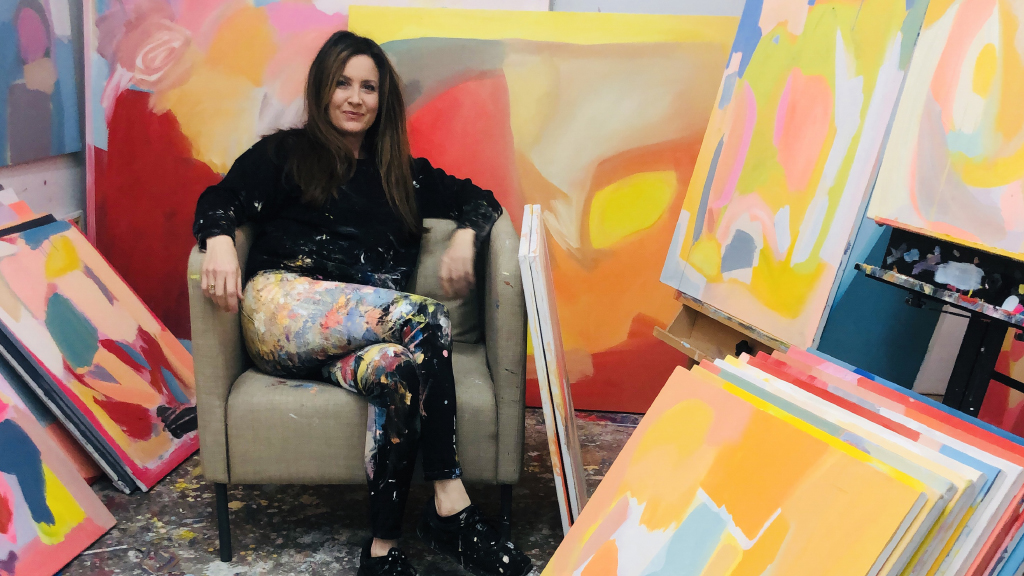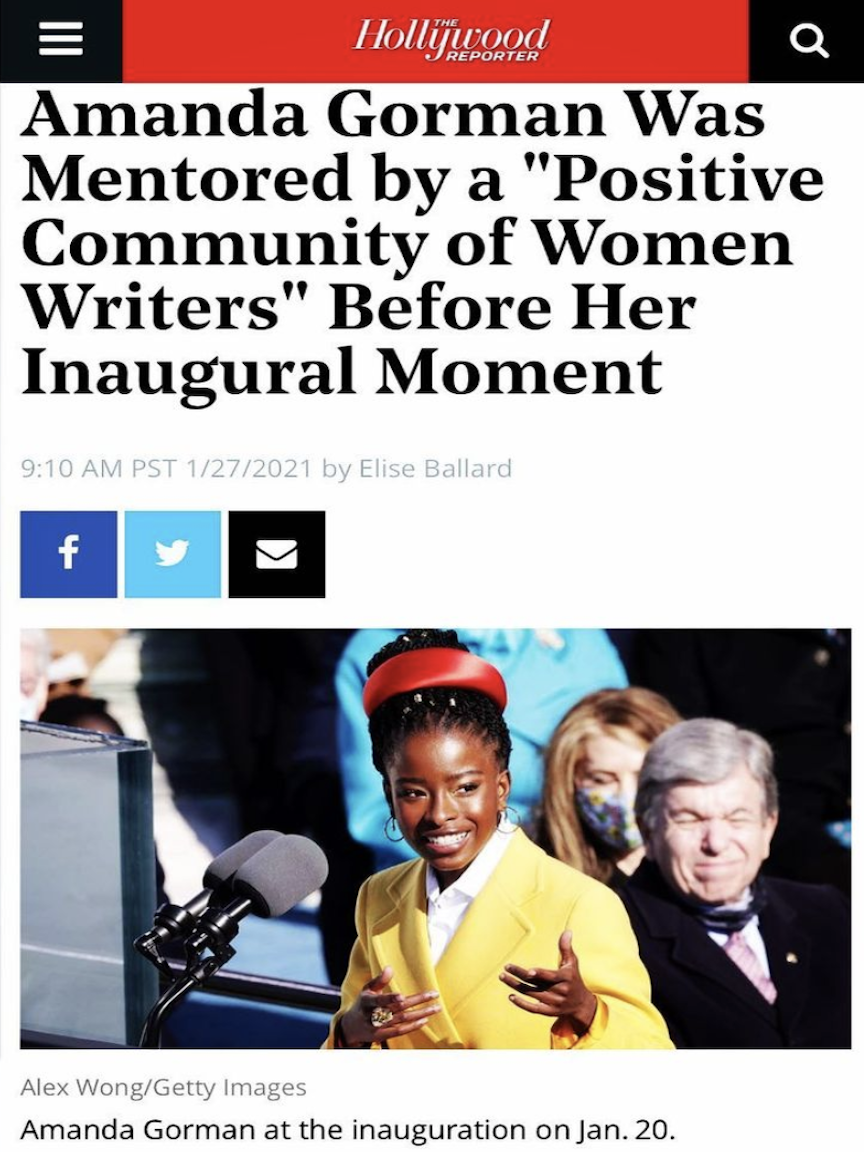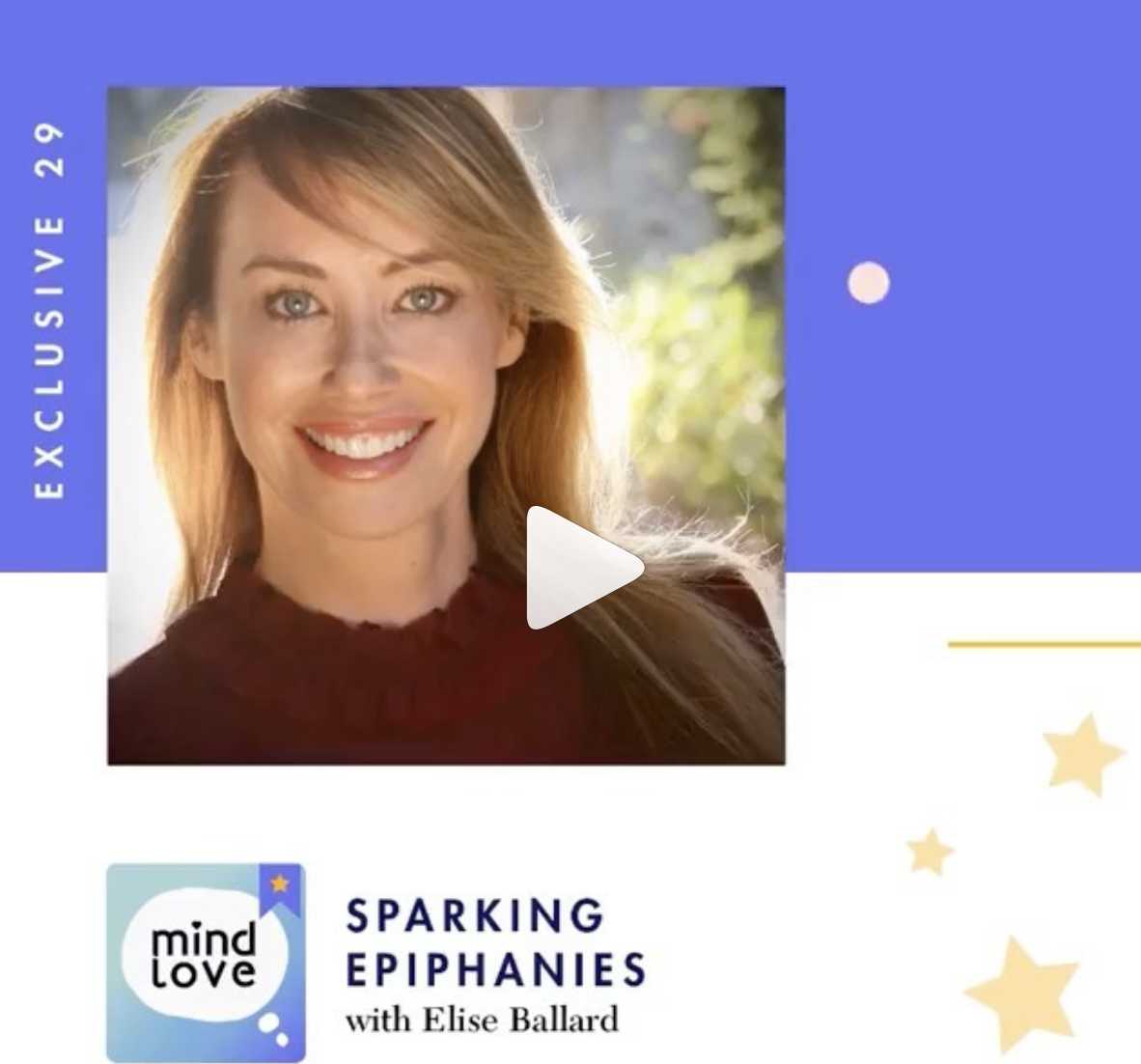
“Better late than never!” Sometimes people had more than one life-changing epiphany that they discussed with me. Dr. Michael Roizen had one about his work as a doctor and scientist which resulted in a new way of practicing medicine and creating RealAge (*you must check this out if you haven’t before) and the other epiphany he had was personal. He realized because of his wonderful wife (gotta love husband-wife respect + romance sparking a life-changing epiphany!) that it was the relationships in his life, including those with the people and patients he works with–that made his life fulfilling—it wasn’t the career itself. He laughed at himself because he said he realized that a little late—but “better late than never!”
Isn’t that the truth? Better late than never… Sometimes I beat myself up about being a late bloomer about so many things, but what good does that do in the end? Better late than never—there’s always time once you “get” something. Someone once told me to always have the mantra running, “I will have perfect timing.” Sometimes it’s just the way life plays out… your timing will not be the same as others’ — in my case, sometimes I’m ahead of the curve, which can be tough and lonely, and sometimes, I’m a little late on the uptake, which can also be super-tough and lonely. But c’est la vie—“I have perfect timing. Better late than never!” Say it, know it, and if you reflect back, sometimes being late was actually better and perfect after all.
Dr. Mike’s epiphanies and others’ from the Epiphany project helped to give me a deeper understanding and experience of life really being about finding and maintaining a level of FULFILLMENT rather than “happiness.” What makes your life fulfilling right now and what vision can you hold for fulfillment in the coming month? Coming quarter? Coming year?
Dr. Roizen’s epiphany follows and you can check more about this interview and his bio on his EpiphanyChannel page.
* Cool Fact: Go to RealAge.com, and find out what your body’s “Real Age” is and get tips about getting and staying younger ie: healthier. We can make our bodies younger (or older) than we actually are with our actions and lifestyles. Maybe “50 is the new 30” isn’t such a stretch anymore… though I think it’s more like 38… 😉 Enjoy~
* Dr. Michael Roizen’s Greatest Epiphany in Life As Told to Elise Ballard *
The first part of my epiphany happened in 1986. I am both an internist and an anesthesiologist, and that year I realized I could motivate patients who had high blood pressure and were smoking with what I now call the RealAge Paradigm. This means that certain things, like smoking, can actually age you prematurely and cut down on the quality and length of your life, but the converse is also true: if you are not smoking, you can actually feel and look younger than you are.
I realized that by telling a patient things like “If you smoke, you’re eight years older” or “By controlling your blood pressure, you get to be twenty-five years younger,” they usually changed their behavior because we weren’t talking about the future. We were talking about what they did now that changed their quality of life today, as well as their risk of disability. It was getting them back to the now, and we were having the great results of getting them motivated to change their habits immediately to improve their quality of life.
The reason I was mainly focused on just the issues of smoking and blood pressure is because the risks of surgery go up by a factor of three every ten years older you are, so I figured that by controlling smoking and high blood pressure, I could make my patients much younger and lower their risks of surgery.
So I had been communicating information to patients in this way since 1986. In 1993—I remember the exact date and time; it was November 24 at 2:30 p.m., the day before Thanksgiving—I had a patient in my office with high blood pressure. I imparted the RealAge information to him about blood pressure, and he asked me, “How many other things in medicine can you do that for?” I said, “I don’t know. Why?” He replied, “Because this is very powerful for me. What docs usually tell me is that I’m going to die a couple of years early if I don’t take my blood pressure medication. This doesn’t really mean anything to me because that’s way off in the future. What you’ve said to me is that if I don’t take my medicine, I’ll live with the energy of someone who’s five years older and live with the risk of someone who’s five years older. Now that means something to me because it can be applied today.” Then he asked again, “How many other things in medicine can you do that for?”
When I replied with an idea of what it might be but that I couldn’t be positive, he said, “How much will it cost me to find out?” I roughly ran through what it would take to do the research necessary and estimated that if would require about $25,000. To my surprise, he reached into his pocket, pulled out his checkbook, wrote a check for $25,000, and said, “I want the answer in six weeks.”
And that was really the start of it all—our work to get health information out to the public. Our company, RealAge, was born. My patient is the co-founder of RealAge with me. He had an epiphany right there in my office about doing this research because it was so motivating for him that he wanted us to bring it to other areas of medicine if we could.
After we started doing the research and work with the $25,000, the second part of my epiphany began. First, I realized that I didn’t know a lot of the data and research that was out there and how good and powerful it was. Here I was, ranked one of the top one thousand doctors in America, and if I didn’t know the data, then most other doctors didn’t either—most other doctors still don’t, although we’re getting some penetration now. We set out to collect as much data and research as we could about aging and health, but we also used other criteria for the program, including whether or not four out of five of us were able to change our behavior as a result. For instance, I remember my wife asked me, “You’re flossing. Did your dentist finally get to you?” And I said, “No, I just saw how powerful the data was that flossing decreased unnecessary aging, even decreasing wrinkles and impotence, along with decreasing heart attacks and strokes.” So flossing was one of those habits I actually changed, and four out of five of us on the board had come back and had adopted the habit, so it became part of our program.
Through our research, we realized that you get to turn on or turn off the genes you were born with. You actually get to change your quality of life through your own actions. All of us (or at least most of us) in the medical profession thought before then that our genes just took us where they wanted us to go. When I learned through our research that, in fact, you can control your genes, I had the epiphany that you can really change your life. You can actually change your life on a cellular level.
About five years after RealAge was started (I had been married twenty-six years at that point), our youngest child had just gone off to college. So both of our kids had moved out. I should have realized this a long time before, but all of a sudden I realized just how important the choice of your spouse or life partner is to life. I had always realized it’s nice to have a great wife—a wife whom you’re attracted to and whom you respect, who does great things, and who brings up kids with you, and so on—and maybe it’s part of my background, but I had never realized that it probably outweighs everything else in the quality of life and the quality of your happiness. It wasn’t a particular instance that happened, but I just realized how lucky I was and how easy life was because my wife, Nancy, was so wonderful.
I realized that Nancy had made everything work so that I could be successful, and I suddenly realized how relatively unimportant my career is compared to her. It is the major relationship in my life that is the most fulfilling thing and what makes life so wonderful for me.
This epiphany about my wife has, in turn, affected all my relationships because as a scientist and doctor building up a career in science, you work very hard and can get “married” to your work. Sometimes you tend to think of relationships as not being quite as important as the career. But my career could go to heck, and it wouldn’t really matter—it isn’t career that’s the thing, people are the thing. Even in terms of my colleagues, like my relationship with Mehmet Oz, our friendship is much more important than a lot of other things. I was fifty-three and had been married twenty- six years before I realized all this, so it took me a while to realize the obvious, right? I’m a slow learner—but better late than never!









